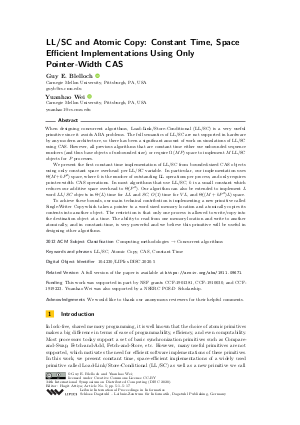LIPIcs.DISC.2020.5.pdf
- Filesize: 495 kB
- 17 pages

 Creative Commons Attribution 3.0 Unported license
Creative Commons Attribution 3.0 Unported license


























Feedback for Dagstuhl Publishing